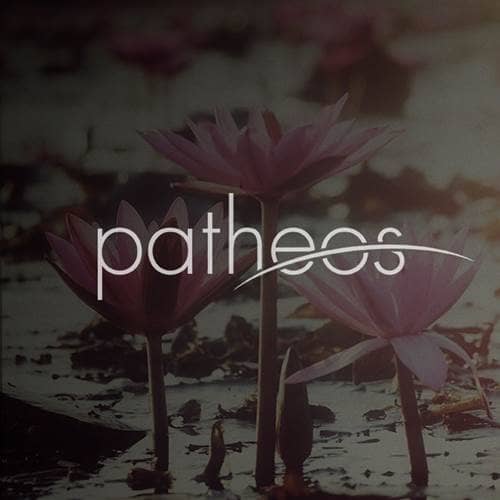- Trending:
- Forgiveness
- |
- Resurrection
- |
- Joy
- |
- Trump
- |
- Kamala Harris
- |
- Supreme Court

RELIGION LIBRARY
Protestantism
Beginnings
Protestant communities share their Christian beginnings with every other Christian tradition, namely in the life and death of Jesus Christ and in the believing community he established. Nevertheless, they trace their contemporary roots to the corruption of the late medieval Roman Catholic church and to the desire to reform it. In its earliest movements, Protestantism was meant to be an internal renewal, not a new branch of Christianity.
The name "Protestant" was coined in 1529 when the Lutheran princes in Germany "protested" against the Diet of Speyer, a meeting that reaffirmed the condemnation of Martin Luther's teachings at the 1521 Diet of Worms. Protestantism today consists in a variety of western Christian traditions. It is estimated that there are currently between 33,000 and 39,000 Protestant denominations and sects. (There is no clear distinction between denomination and sect; the terms are largely linked to size, sects being very small.) Almost all are part of or offshoots from Lutheranism, Reformed Christianity, Anabaptism, the Baptist tradition, Anglicanism, Methodism, Restorationist churches, or Pentecostalism. And all ultimately trace their roots, some more directly than others, back to the reform begun in 1517 by Martin Luther.
Martin Luther (1483-1546) was a Roman Catholic monk trained as a biblical scholar and theologian. Through his reading of the letters of the apostle Paul he came to believe that salvation cannot be earned through good works, but consists of the free gift of forgiveness that no one can merit. The first principle of Protestantism was "justification by faith alone" (faith being trusting in Jesus Christ for the forgiveness of one's sins). For Luther the idea that he had nothing whatsoever to contribute to his salvation, that his fate was entirely in God's hands, came as a great relief. Though Luther had been a devout monk, he was never sure that he had confessed his sins enough and performed enough good works, and was in a constant state of anxiety about his salvation. He felt he was in far more reliable hands if his salvation was purely a gift from God.
One of the other beliefs to which this led Luther was belief in predestination, the idea that God has already decided at creation who will be saved. This belief did not originate with Luther. It is present in many earlier Catholic writers, including Augustine (354-430) and Thomas Aquinas (1225-1274). Luther simply linked his arguments regarding justification by faith with the teachings regarding predestination in ways that challenged the sacerdotalism of the Catholic Church.
There are varying understandings of predestination within Protestantism. Some Christians are more comfortable with the idea that salvation is in part the result of a free decision to accept God's grace, and thus they believe in some measure of free will. They are uncomfortable with the idea that there is nothing those who are damned can do. They feel this makes God out to be a monstrous tyrant. Arminians and Methodists, for example, and following them many Baptists and Pentecostal Charismatics, preserve some measure of human free will. Others, in the desire to preserve the absolute sovereignty of God, leave all matters of salvation and damnation in the hands of God.
A second Protestant principle is "the priesthood of all believers." Because one is saved by faith and not by performing works, even sacraments administered by the church, there is no need of priests to act as intermediaries with God. In other words, each Christian stands in a direct relationship to God and has full access to God's presence and help. In general, Protestant congregational leaders are called ministers or pastors rather than priests (Anglicans are an exception). Ministers do not have a special status with God, but they are called to the office of leadership and service because of certain talents such as preaching and pastoral care.
When Luther's theology led him to challenge the practice of selling indulgences, because that practice taught people to rely on works rather than faith, he challenged the authority (and an important money stream) of the Catholic Church. When the pope demanded that Luther submit to his authority, Luther argued that there was no authority higher than scripture. Thus, the third major Protestant principle is "scripture alone." It is this claim that scripture, not some institutional authority, has the final say that has led to the incredible variety and number of Protestant groups. Much, if not most, of the diversity within Protestantism is the result of differing interpretations or applications of the teaching of the Bible.
Reformed Christianity began in Switzerland almost simultaneously with Luther's reform in Germany. It was led by Huldrych Zwingli (1484-1531) and John Calvin (1509-1564), who agreed with Luther on most beliefs (though not, for example, on precisely what happens during the Lord's Supper). Lutheran and Reformed Christians were challenged almost immediately by the Anabaptists. Based on their reading of scripture, the Anabaptists argued that only those old enough to understand the concepts of sin and forgiveness could have faith, and so only adults should be baptized. (Believing that their own infant baptisms were not valid, they baptized each other. In the eyes of their opponents, however, this was re-baptism, which is the meaning of the moniker "Anabaptist.") Some Baptists derive from these continental Anabaptists while others derive more proximately from Puritan Calvinists in England.
In England a dispute over his desire to divorce led King Henry VIII (1491-1547) to separate from the Roman Catholic Church. His was originally a political change; he placed himself, rather than the pope, as the head of the Church in England. The early theological and liturgical shape of the Anglican church was profoundly influenced by Thomas Cranmer (1489-1556), Archbishop of Canterbury, and also by John Calvin. (The Puritans desired a more thorough reformation of the English Church, believing it was still too Catholic).
Study Questions:
1. Where did the term Protestant originate? Whom does it include?
2. Who was Martin Luther? How did his theology differ from that of Roman Catholicism?
3. What is meant by the priesthood of believers? How did this help to challenge the hierarchy of the Roman Catholic Church?
4. How did reform manifest itself outside of Luther?










